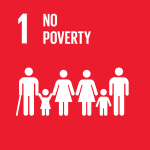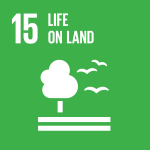
Lilongwe, Malawi – Malawi, through the Environmental Affairs Department under the Ministry of Natural Resources and Climate Change, with support from the United Nations Development Programme (UNDP), has secured US$8.9 million in grant financing from the Global Environment Facility (GEF) under its Least Developed Countries Fund (LDCF) to implement a new climate adaptation project titled "Championing Local Adaptation for Productive Ecosystems and Enhanced Resilience (CLAP for Resilience)”.
Targeting the Bua River Basin in Malawi’s Central Region, specifically the districts of Mchinji, Kasungu and Nkhotakota, the six-year project will enhance the resilience of 28 vulnerable rural communities facing the compounding effects of climate change, deforestation, land degradation and biodiversity loss.
These challenges are especially severe for women, youth and other marginalized groups who rely heavily on rain-fed agriculture and natural ecosystems for survival.
“This project reflects Malawi’s continued commitment to enhancing climate resilience and sustainable development,” said Hon. Dr. Owen Chomanika, Minister of Natural Resources and Climate Change. “By working with communities, the private sector, and development partners, we are laying the foundation for a climate-resilient future in the Bua River Basin.”
The CLAP for Resilience project adopts an integrated, watershed-based approach to climate adaptation, combining ecosystem restoration, climate-resilient agriculture, inclusive local governance, and private sector engagement. It will be delivered across four key components:
1. Strengthening capacities to support gender responsive grassroots interventions for climate change adaptation and governance of resources for long-term resilience.
2. Supporting the adoption of climate-smart and nature-based solutions for climate-resilient agriculture and ecosystems.
3. Strengthening private sector engagement for investments in economic value chains and climate-resilient livelihoods.
4. Participatory planning and knowledge management for sustainability.
This integrated approach will address several remaining barriers to adaptation, ensuring that the communities living in the target districts are resilient and develop sustainably under current and future climate conditions.
The GEF contribution will be complemented by significant co-financing of $54.9 million from the Government of Malawi and other partners, including UNDP core resources ($800,000).
“UNDP is proud to continue its long-standing partnership with the Government of Malawi,” said Ms. Fenella Frost, UNDP Resident Representative. “We remain dedicated to helping the government secure a more prosperous, inclusive, low-carbon future. This includes advancing adaptation, increasing access to (renewable) energy in remote areas, climate-informed policy development and planning, and, ultimately, raising and realising the country’s climate targets under the global Paris Agreement.”
“The GEF is proud to partner with Malawi to advance locally led solutions that protect vital ecosystems and strengthen livelihoods,” GEF CEO Carlos Manuel Rodríguez said. “This collaboration with UNDP exemplifies how targeted investments from the Least Developed Countries Fund can unlock long-term resilience, foster inclusive development, and help communities thrive in the face of mounting environmental pressures.”
The project’s implementation will be led by the Environmental Affairs Department (EAD) and draw on strong collaboration with district councils, community-based organisations, and private sector actors.
It will also align with and complement other national initiatives, such as the Malawi Watershed Services Improvement Programme, the Enhanced Climate Smart Public Works Programme, and the Growth Accelerator Programme.
By restoring ecosystems, diversifying livelihoods, and enabling inclusive governance, CLAP for Resilience aims to reduce community vulnerability to climate shocks and help secure sustainable development in one of Malawi’s most climate-vulnerable regions. The project’s practices and lessons learned will be adaptable and scalable nationwide.
For all media queries:
Blessings Samuel Phumisa, UNDP Communications Analyst
Email: comms.support.mw@undp.org
Phone: +265 888 301 039
*
About UNDP
UNDP is the leading United Nations organization fighting to end the injustice of poverty, inequality, and climate change. Working with our broad network of experts and partners in 170 countries and territories, we help nations to build integrated, lasting solutions for people and planet.
About the Global Environment Facility
The Global Environment Facility (GEF) includes several multilateral funds working together to address the planet's most pressing challenges in an integrated way. Its financing helps developing countries address complex challenges and work towards meeting international environmental goals. Over the past three decades, the GEF has provided more than $26 billion in financing, primarily as grants, and mobilized another $153 billion for country-driven priority projects.
About the Least Developed Countries Fund
The Least Developed Countries Fund (LDCF) is the only global fund dedicated to helping Least Developed Countries adapt to climate change. Managed by the Global Environment Facility, the LDCF supports locally led solutions across agriculture, water, health, infrastructure, and beyond – strengthening systems, scaling finance, and building resilience where it’s needed most. The LDCF has delivered more than $2.35 billion in grants to date – supporting the transition from incremental to transformational adaptation across 51 countries.





